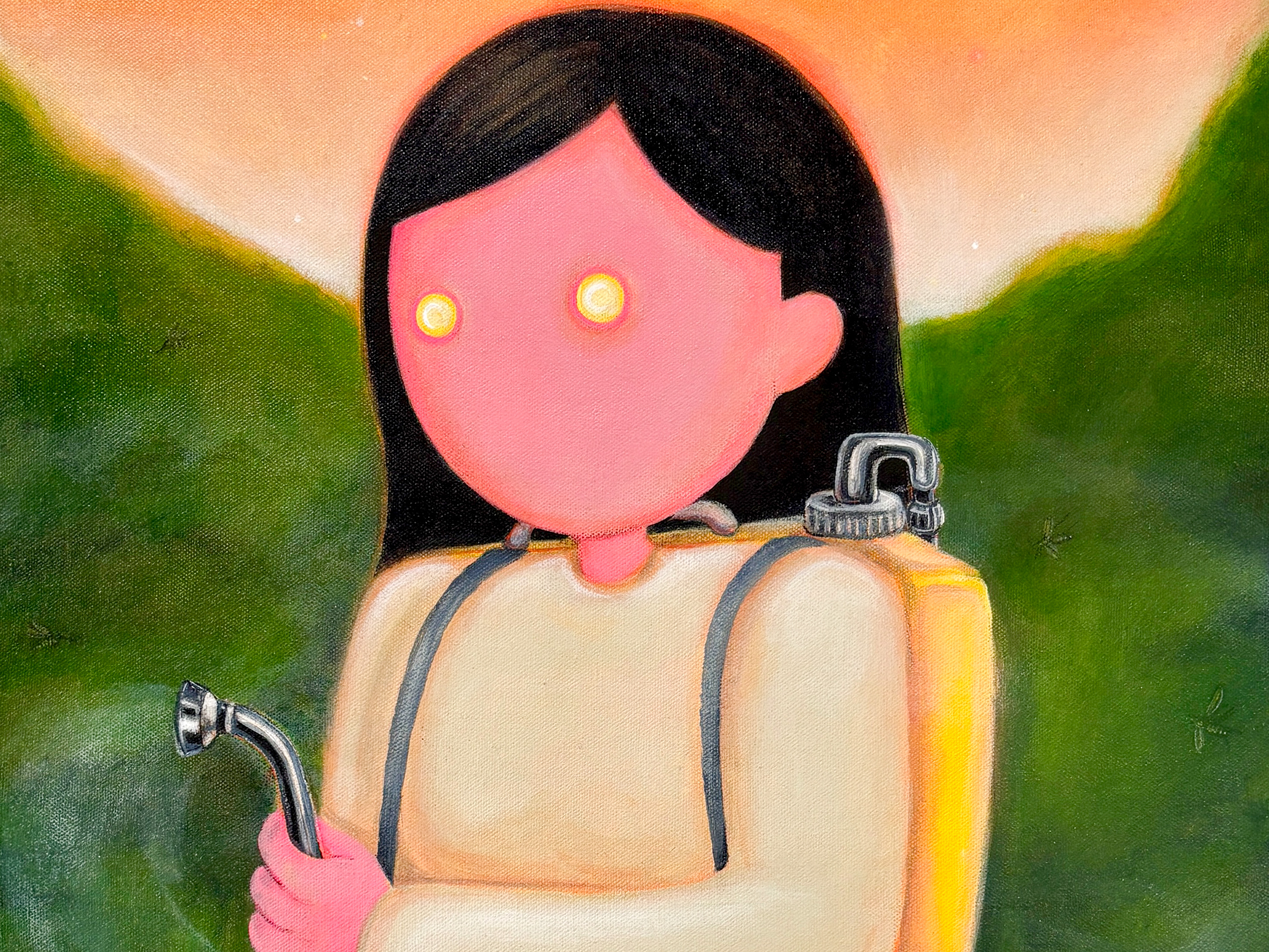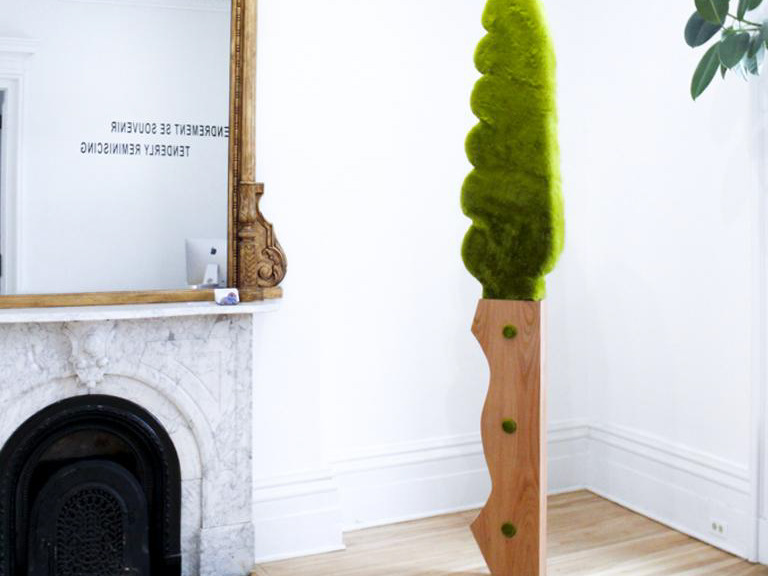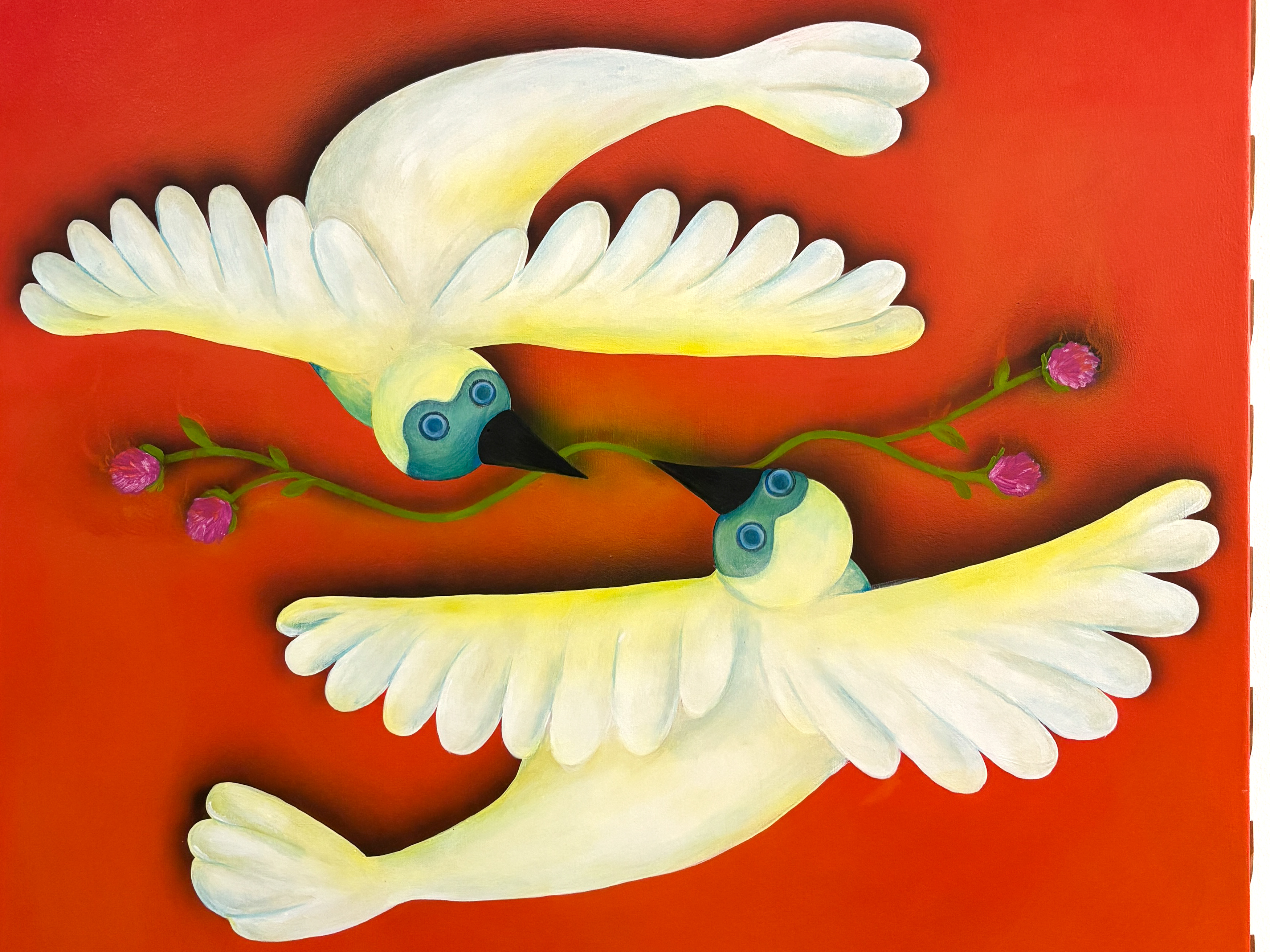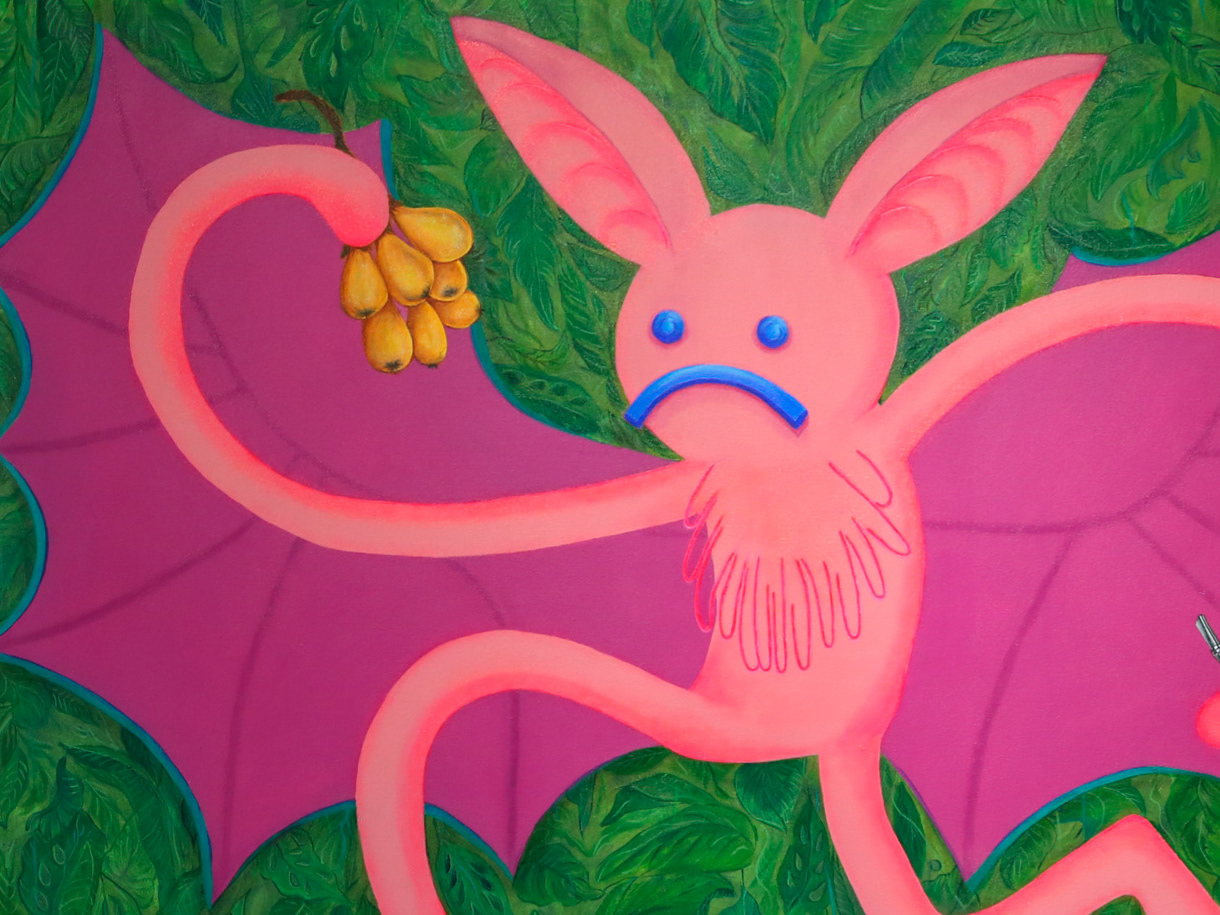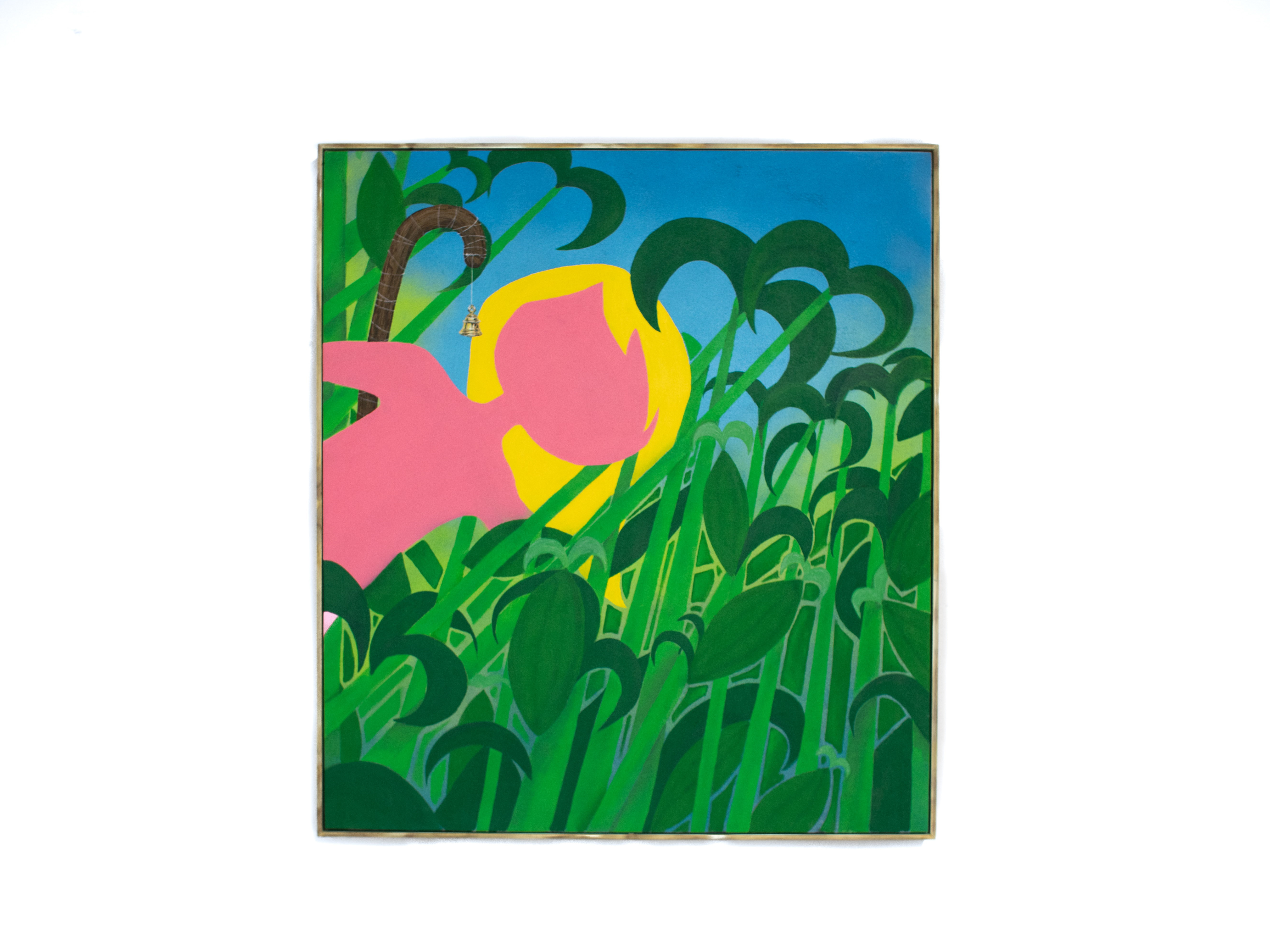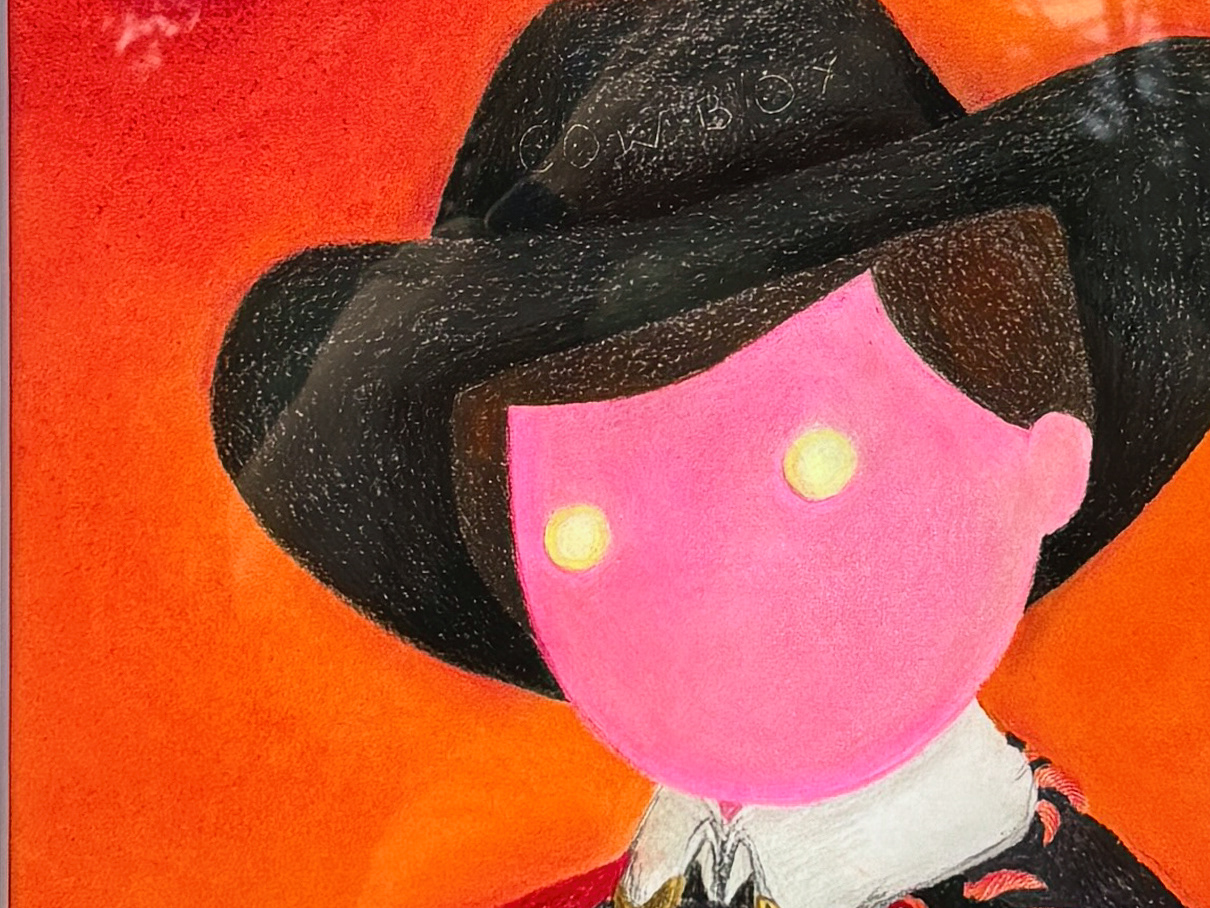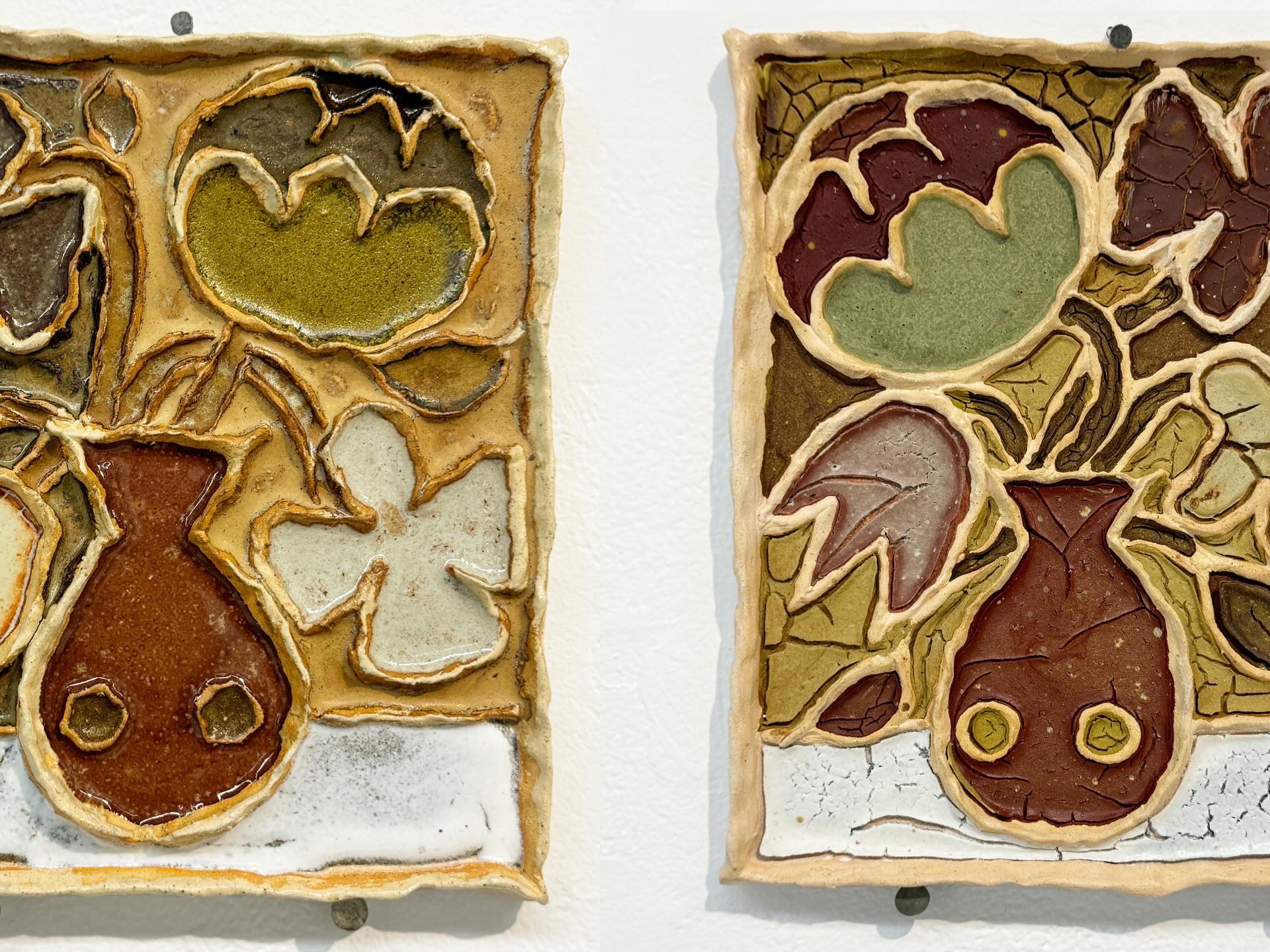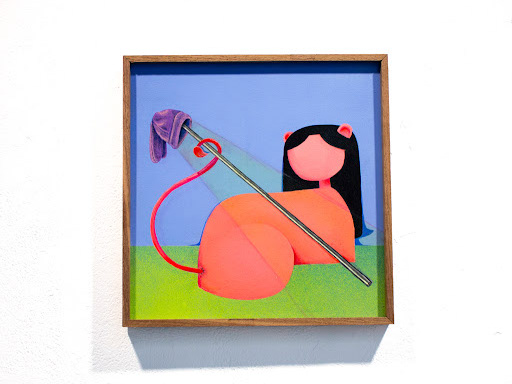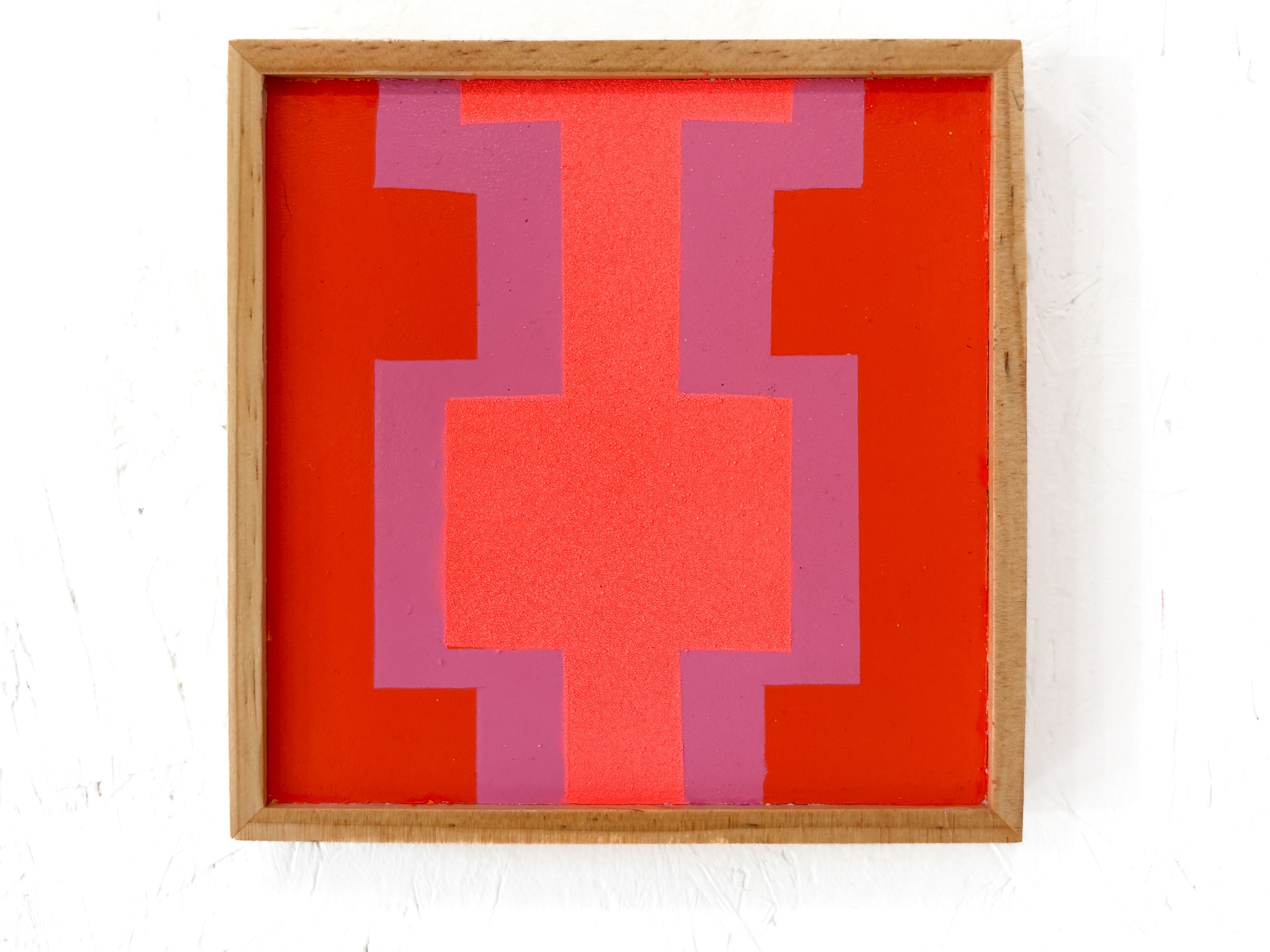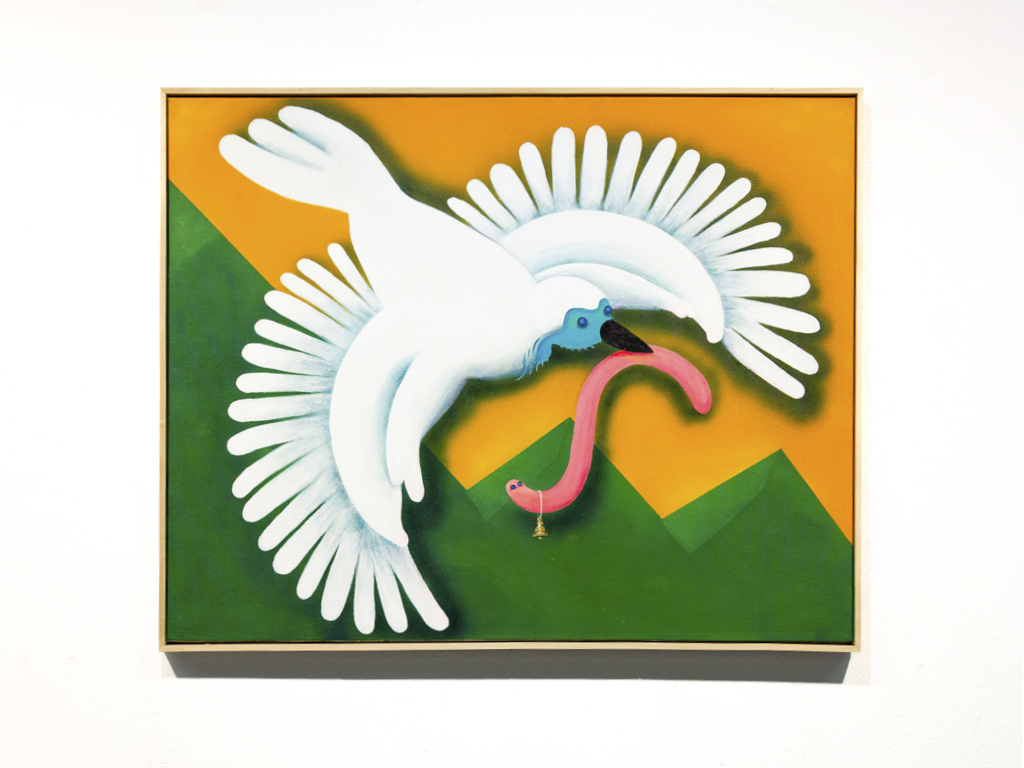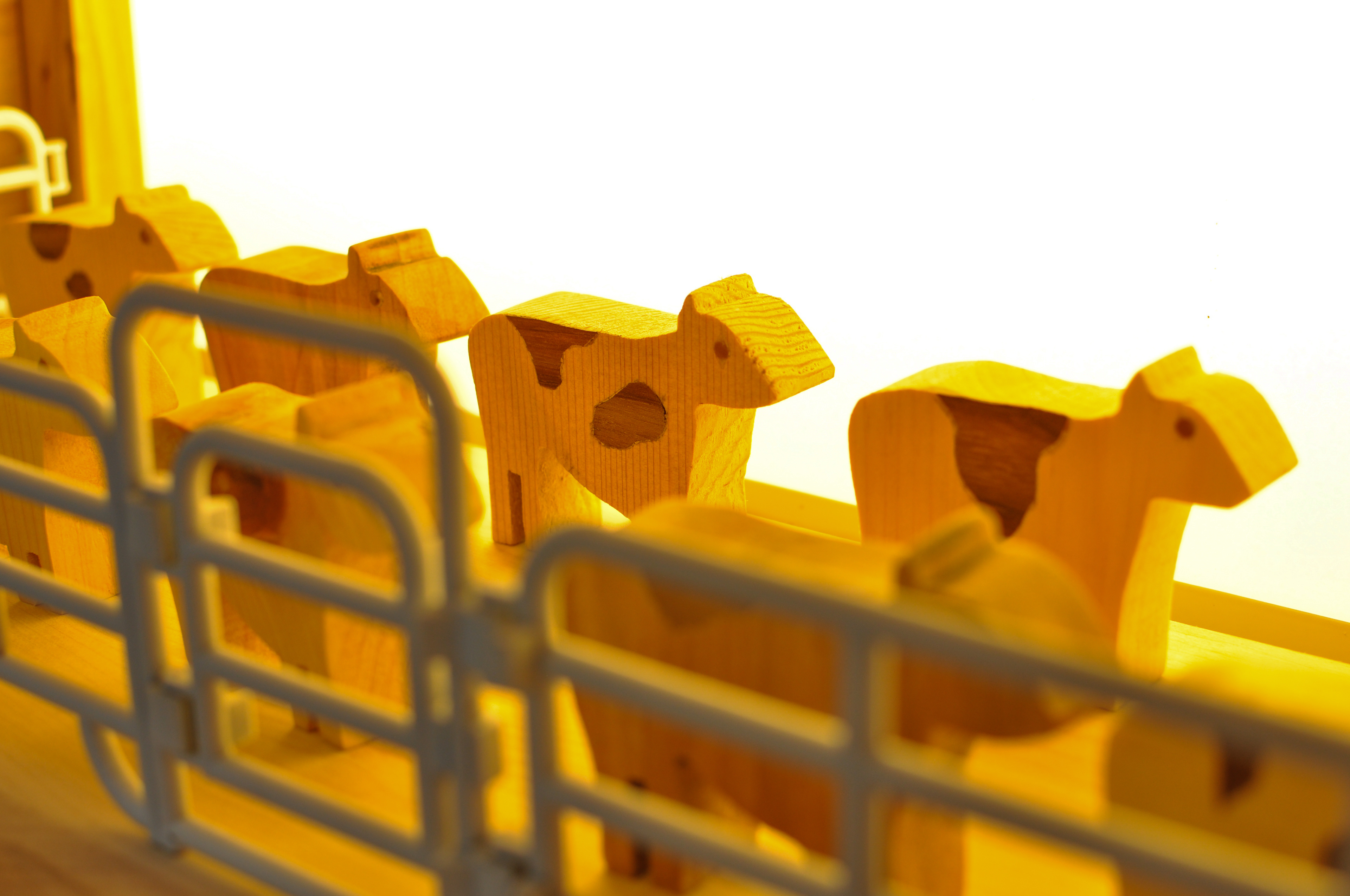
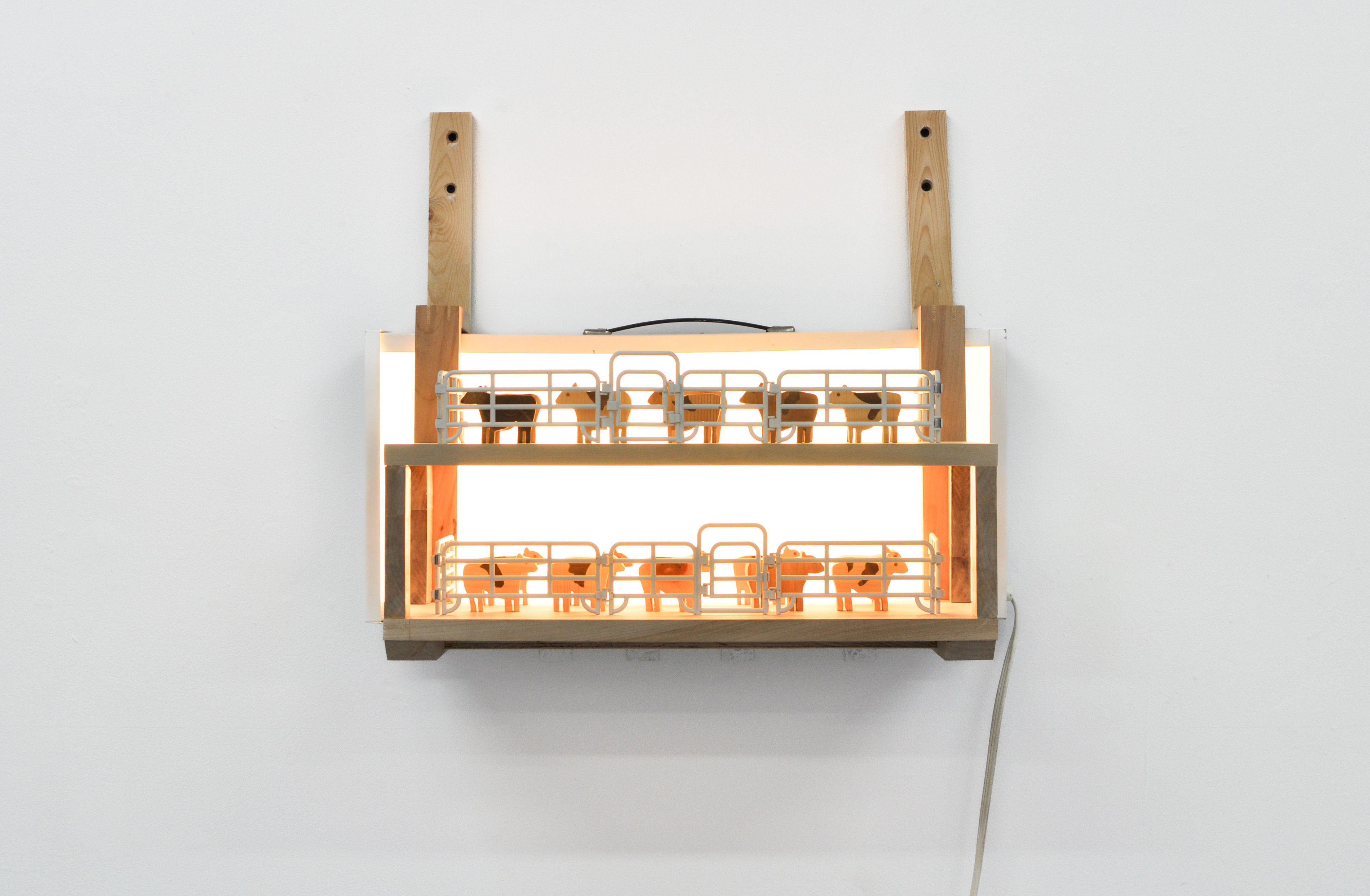
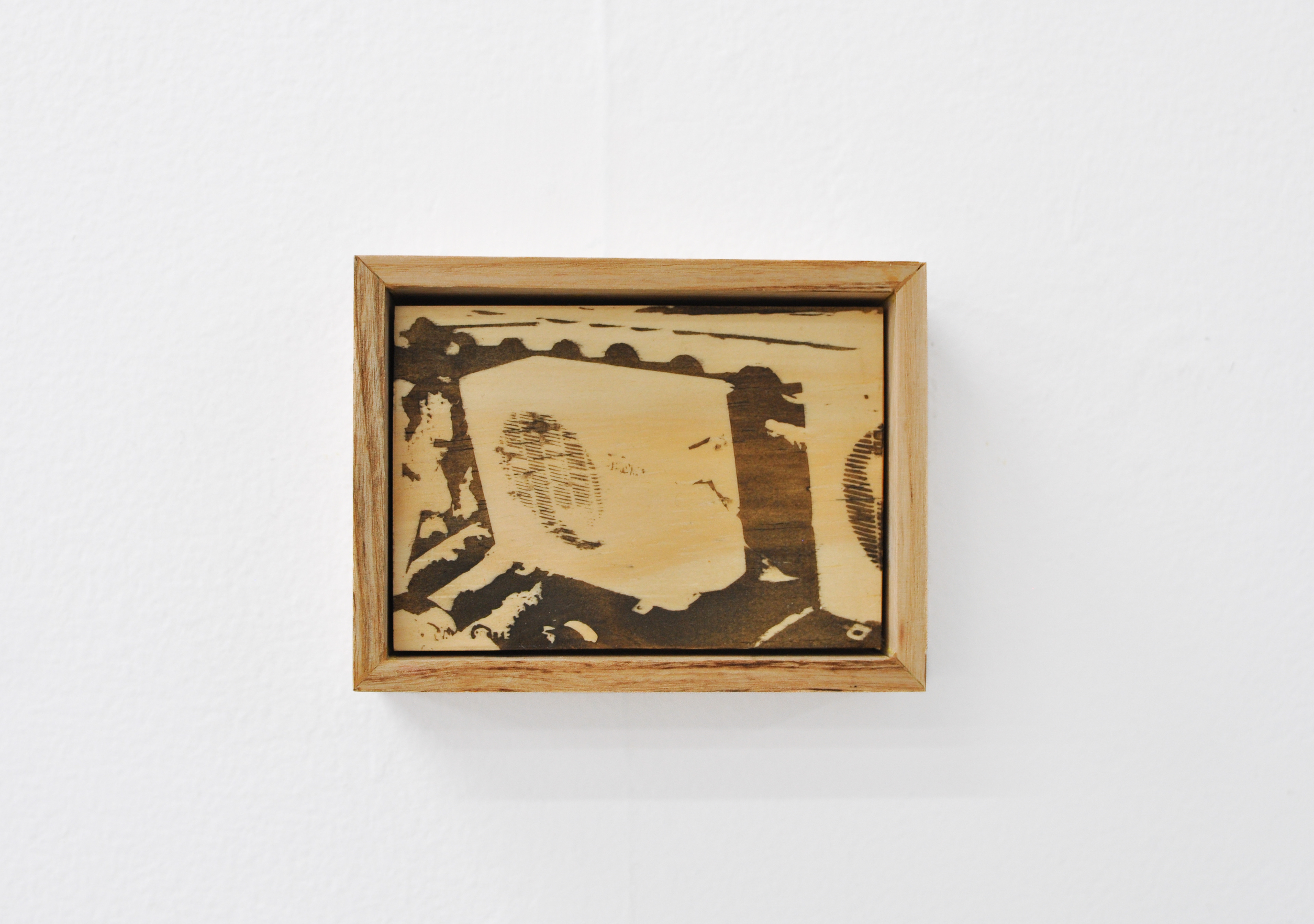
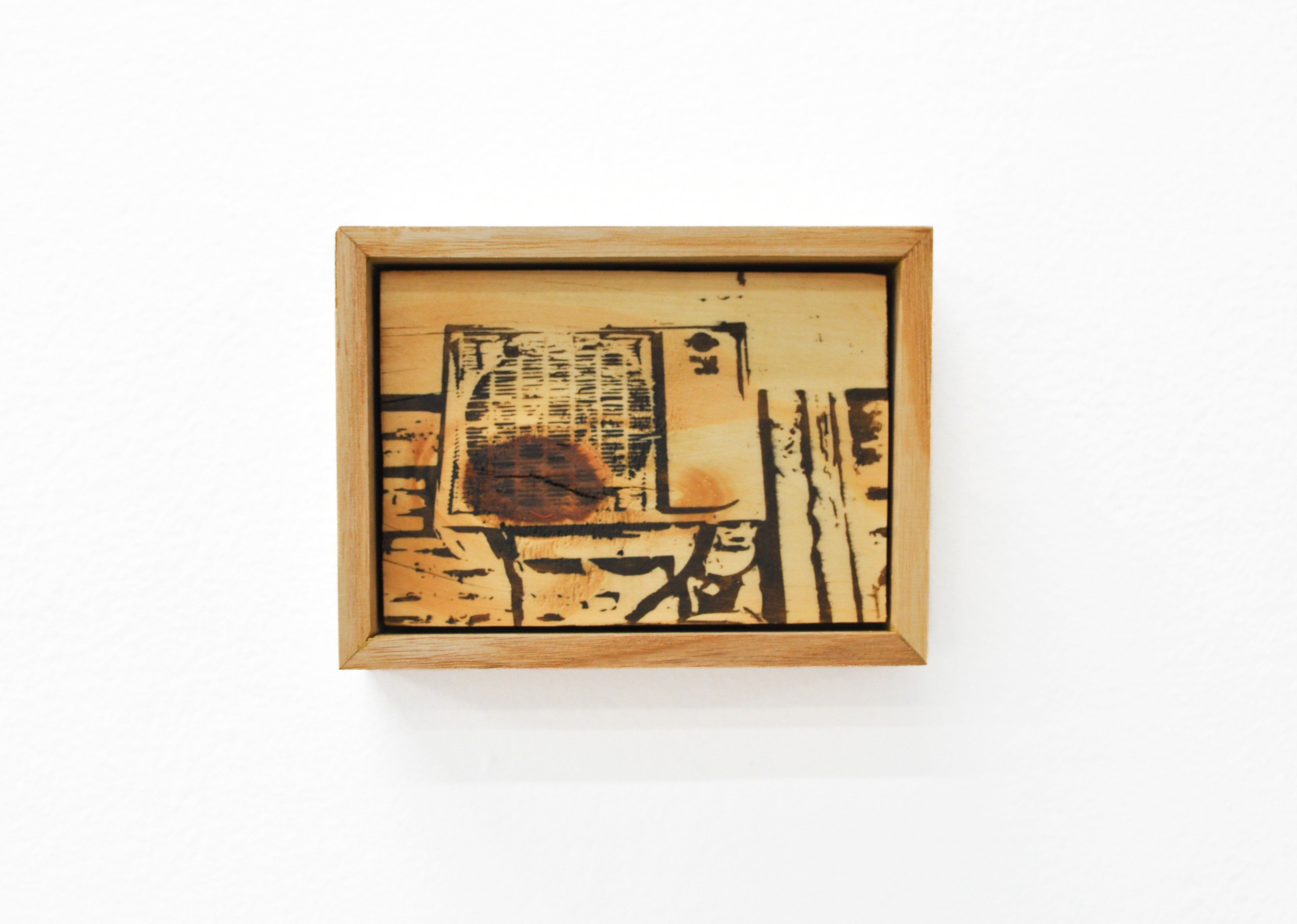
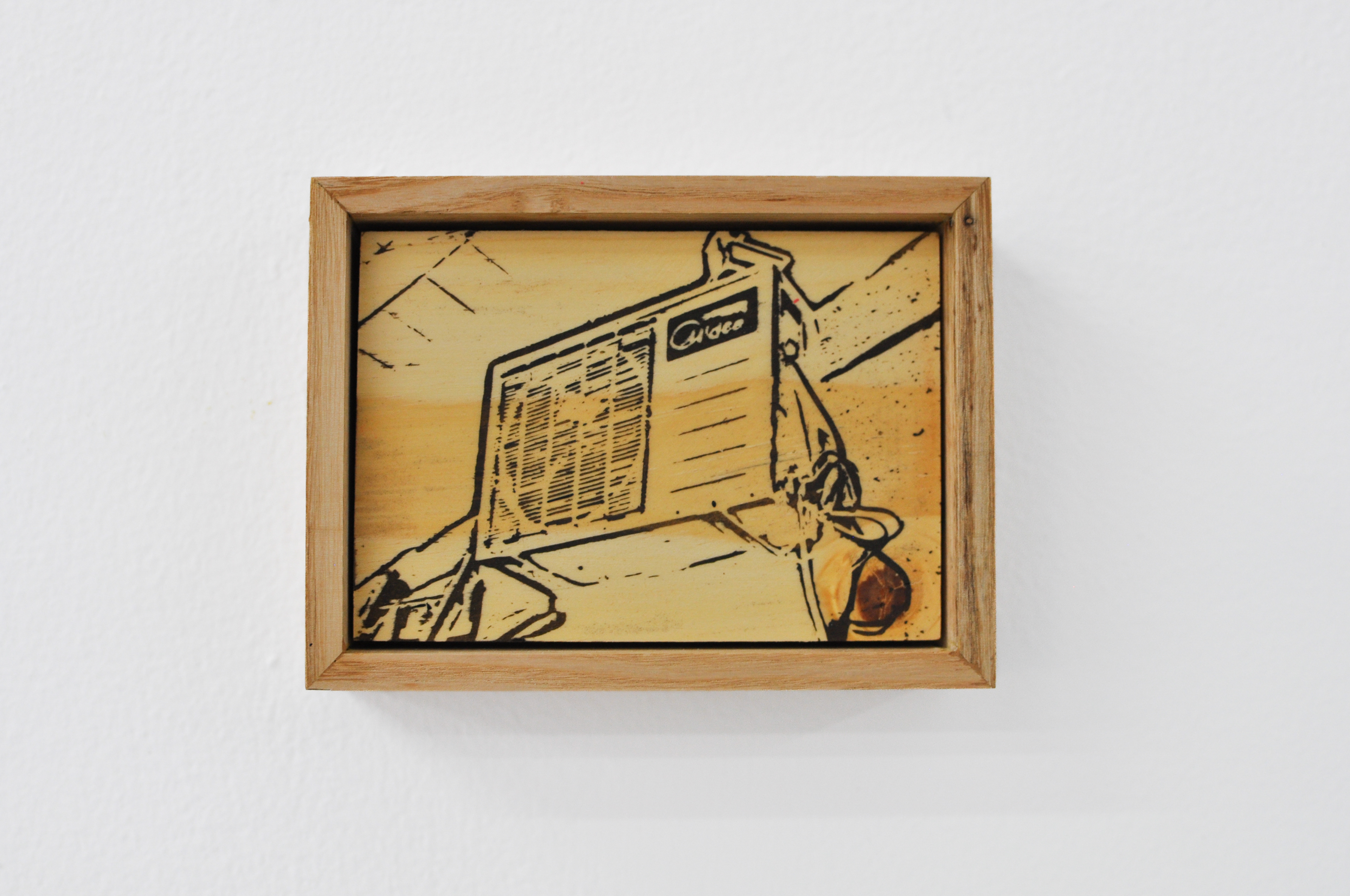
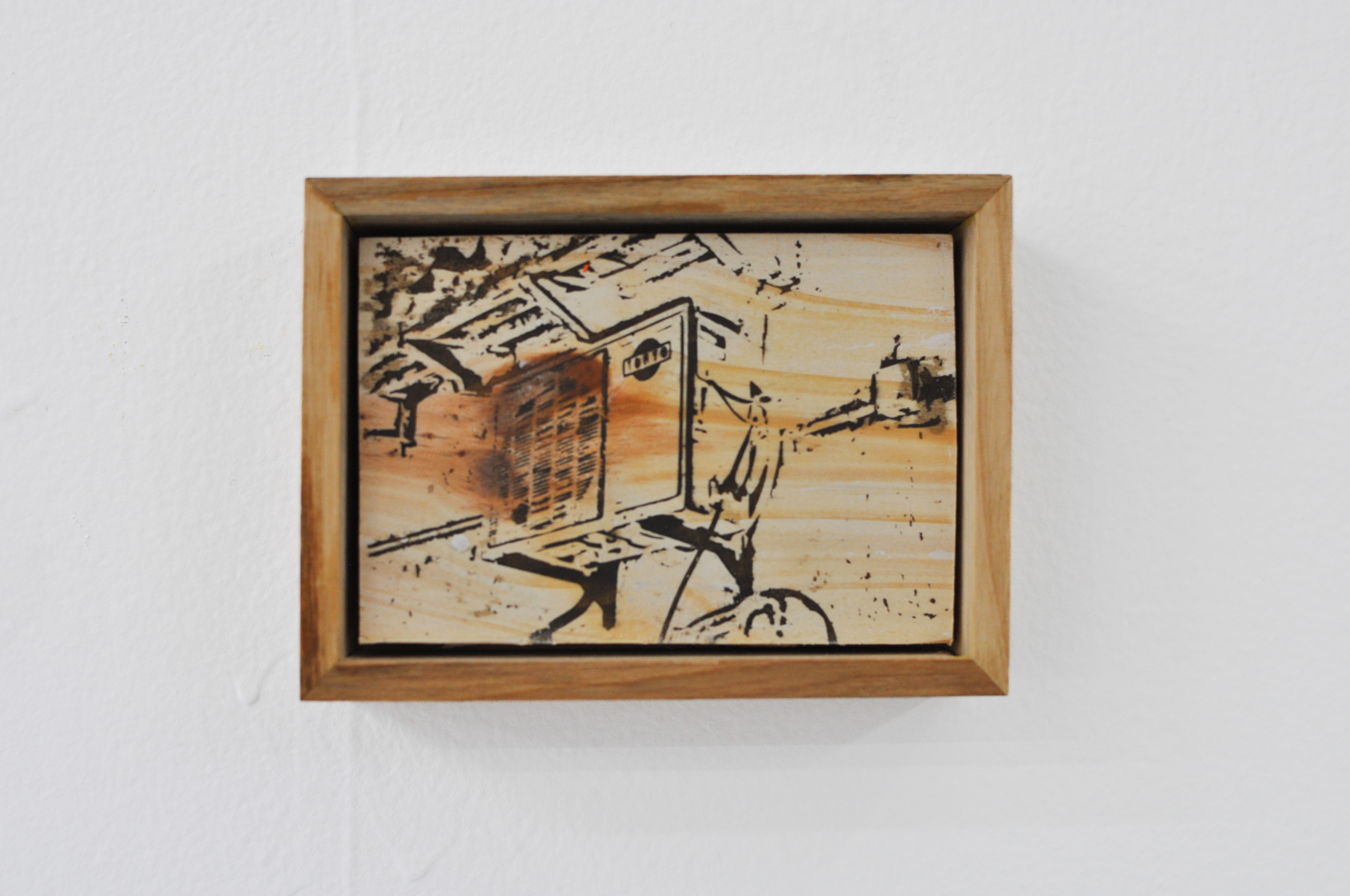
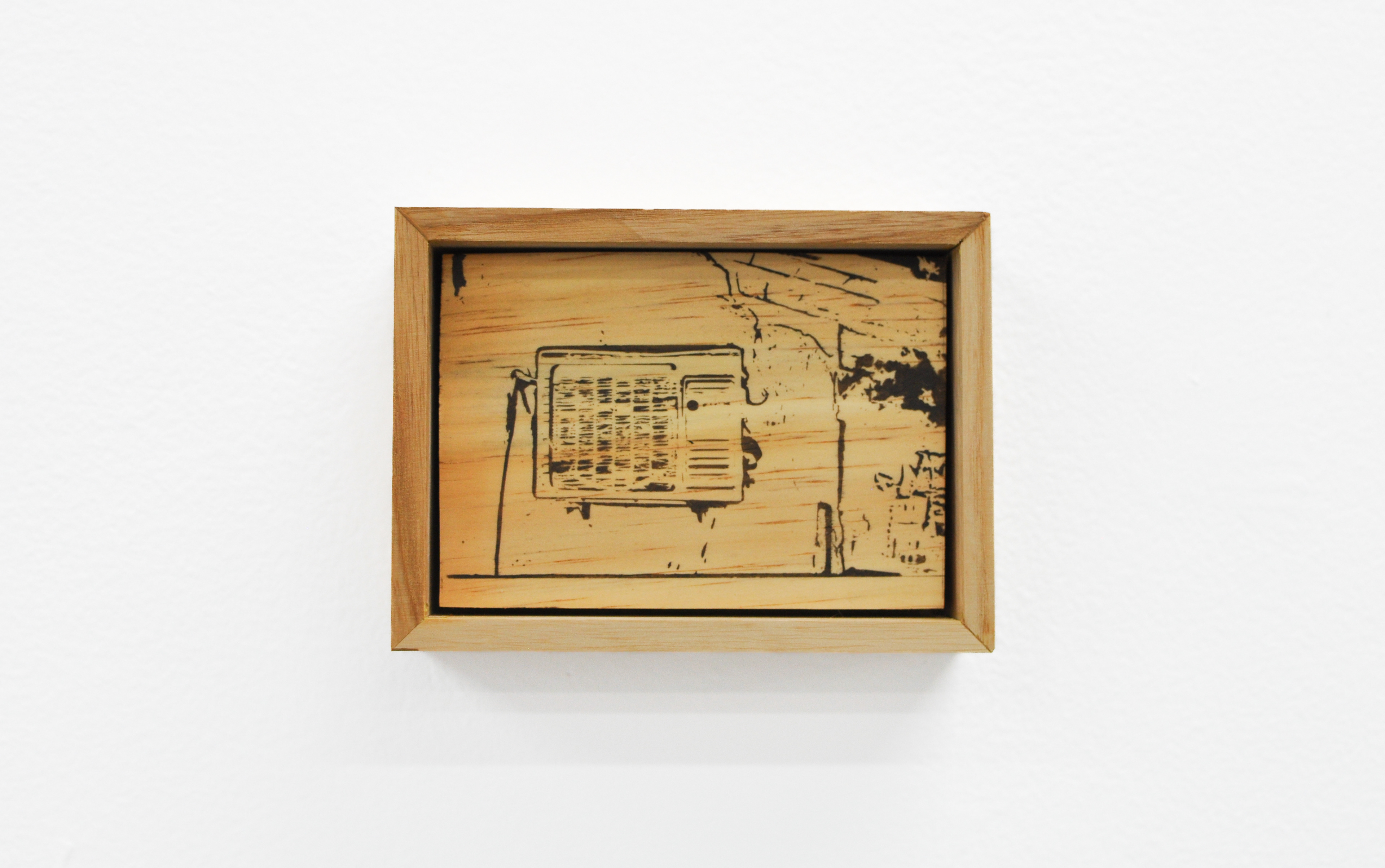
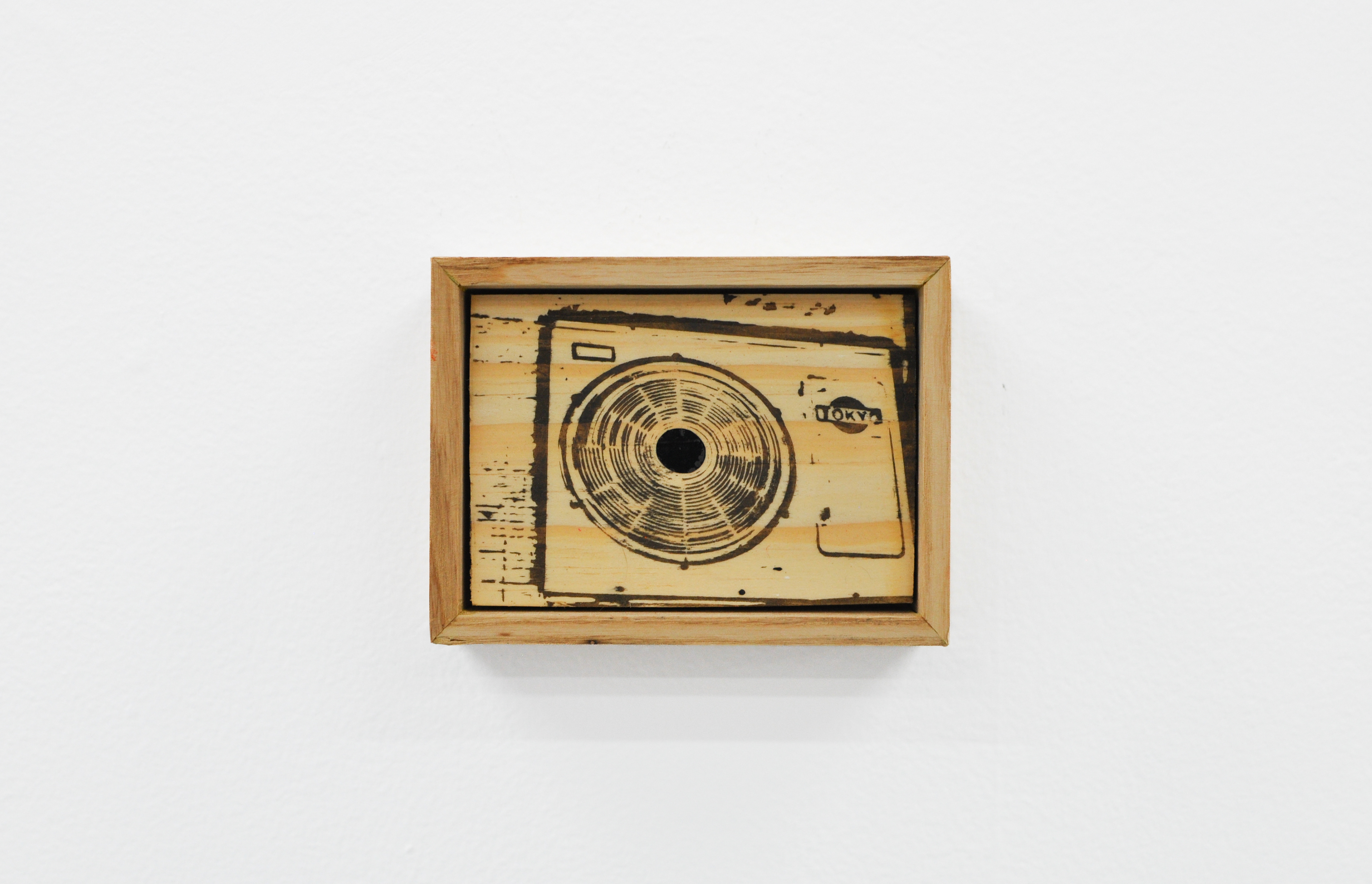
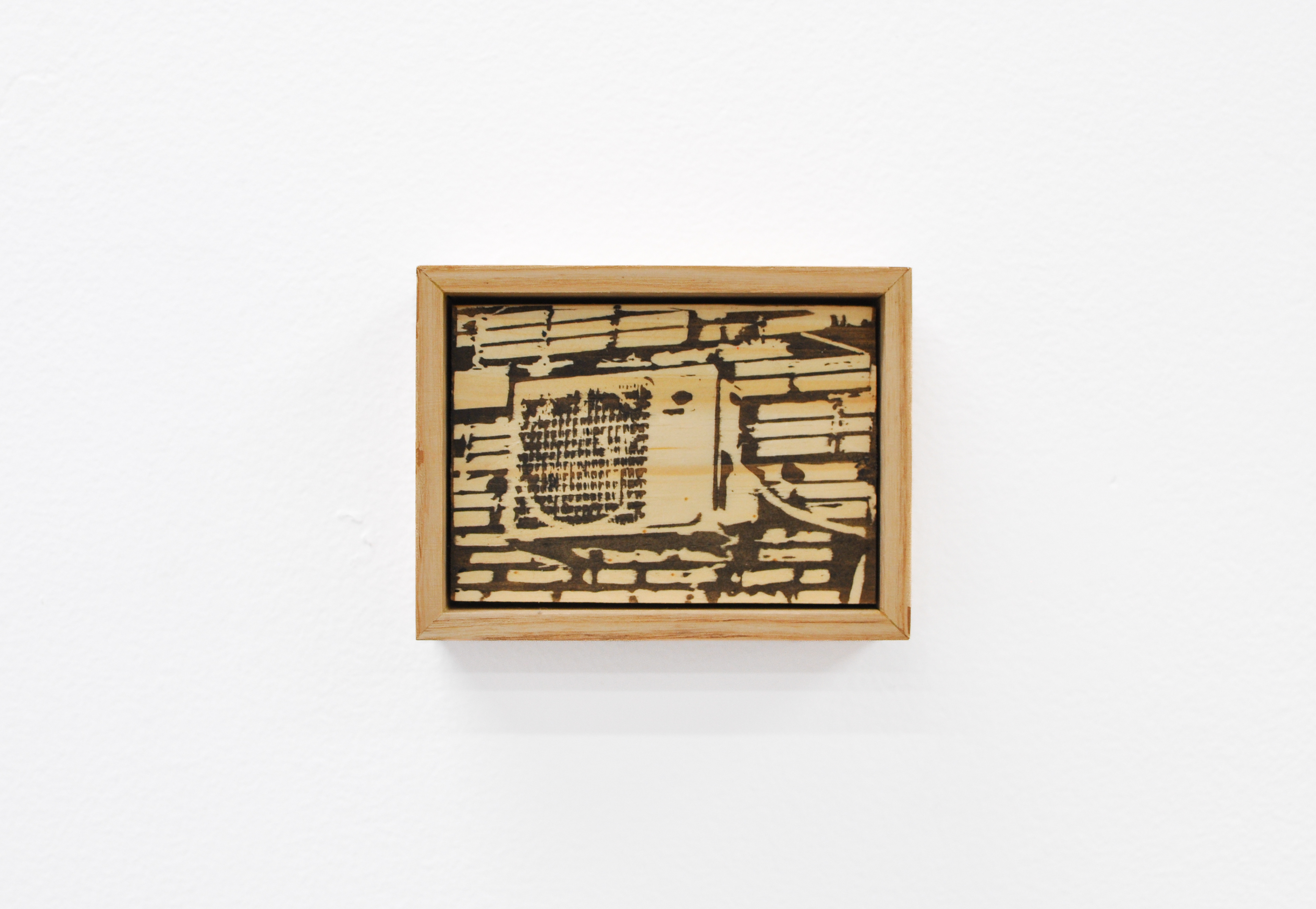
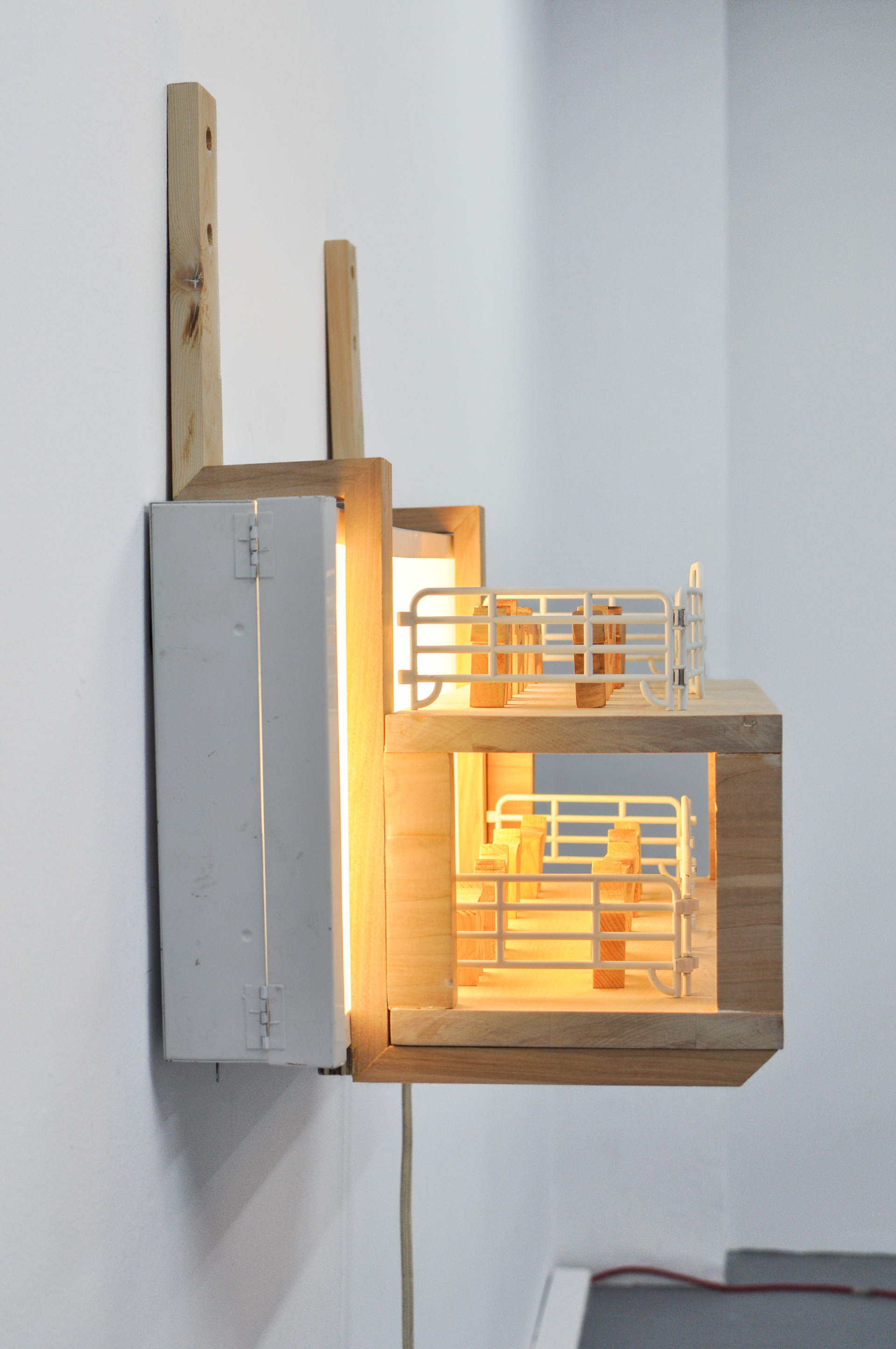
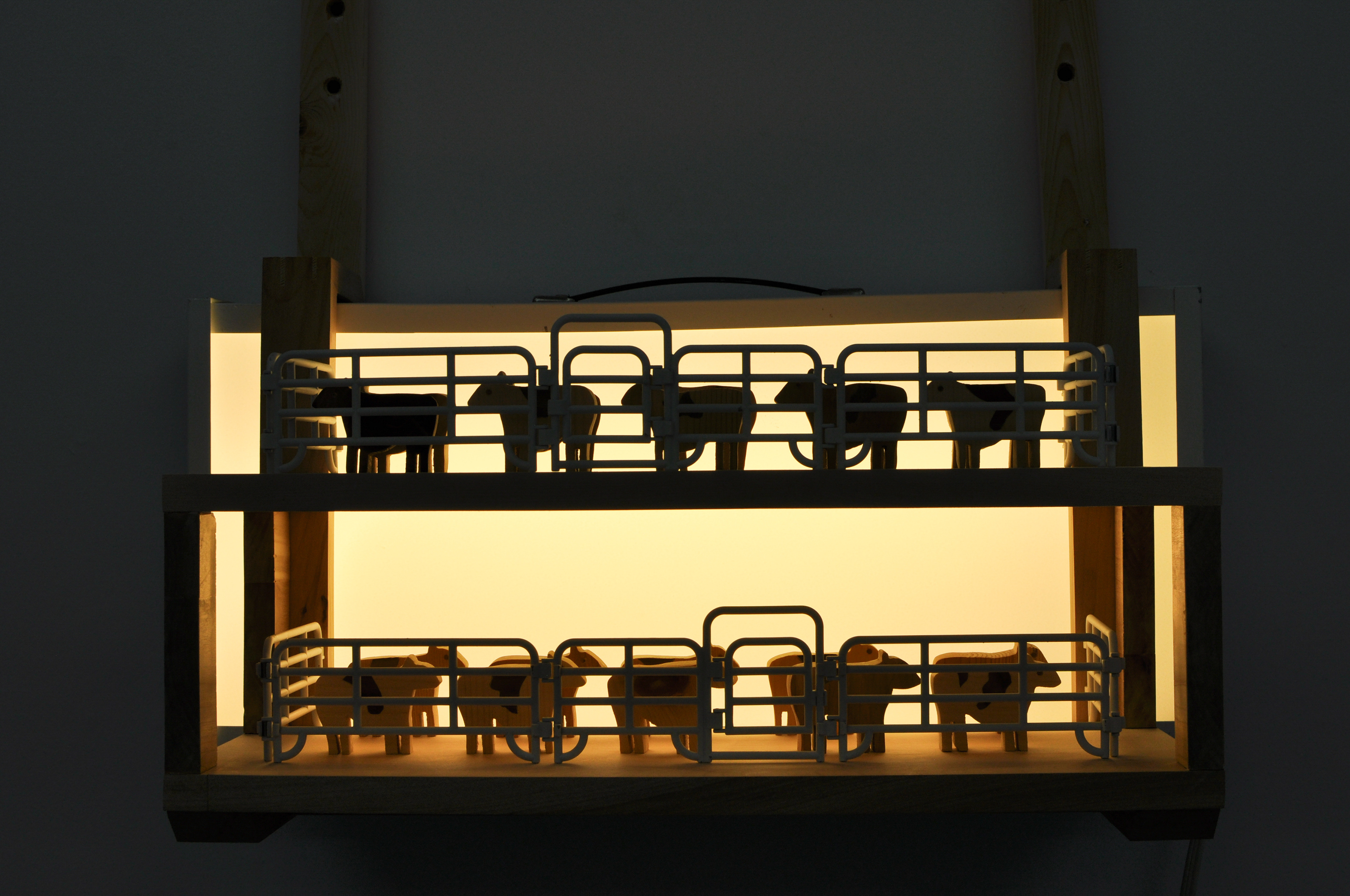
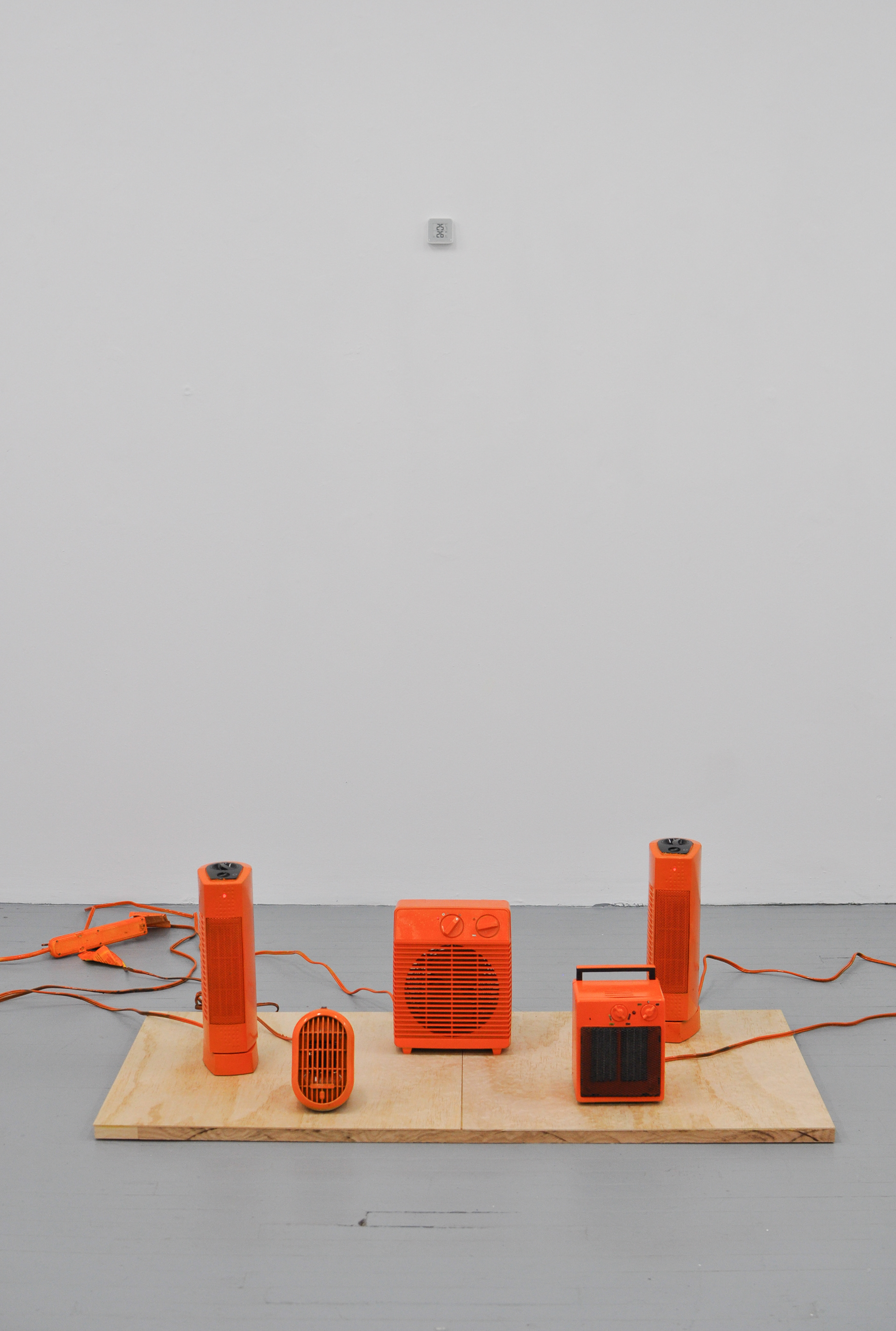
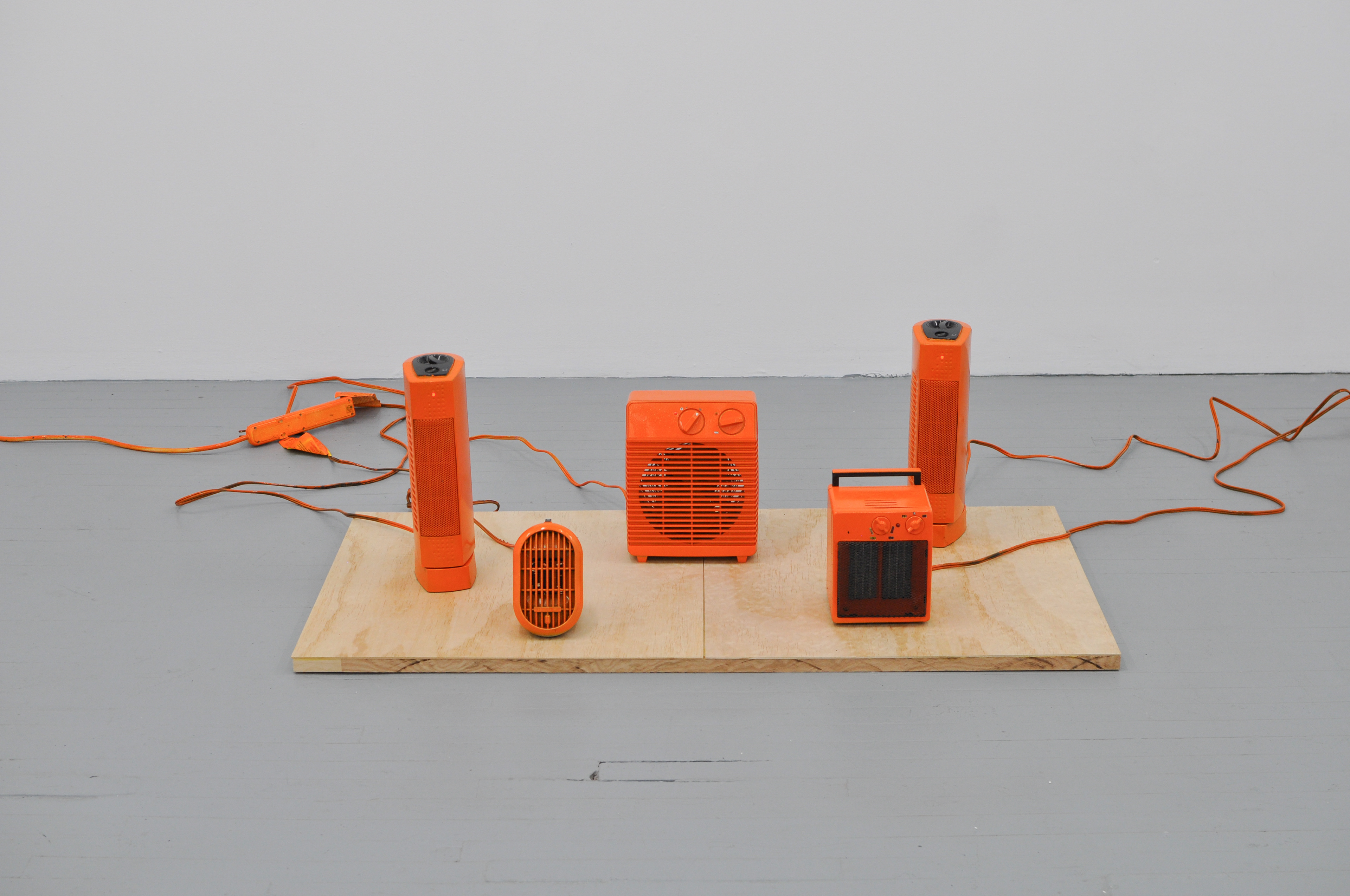
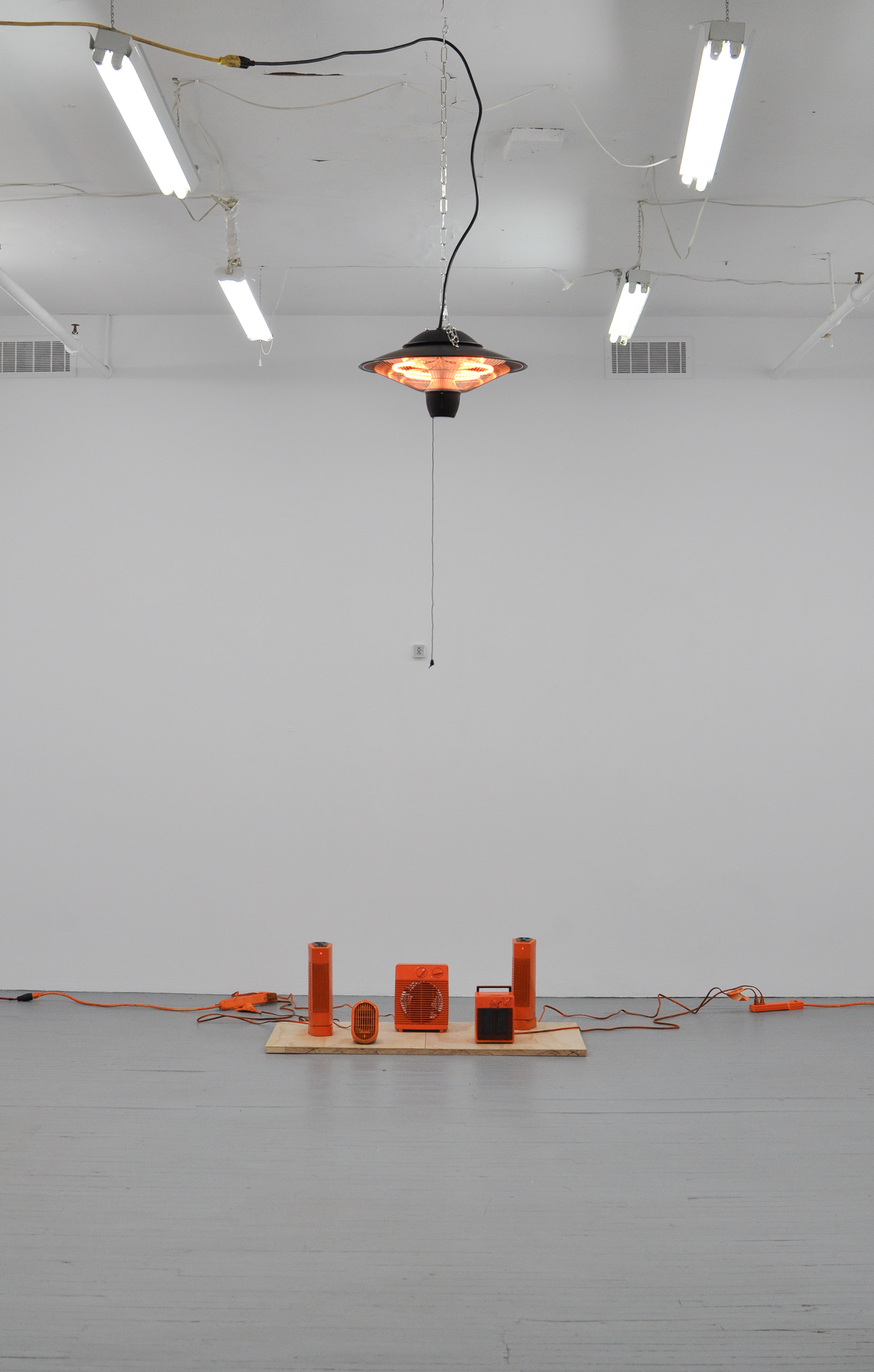

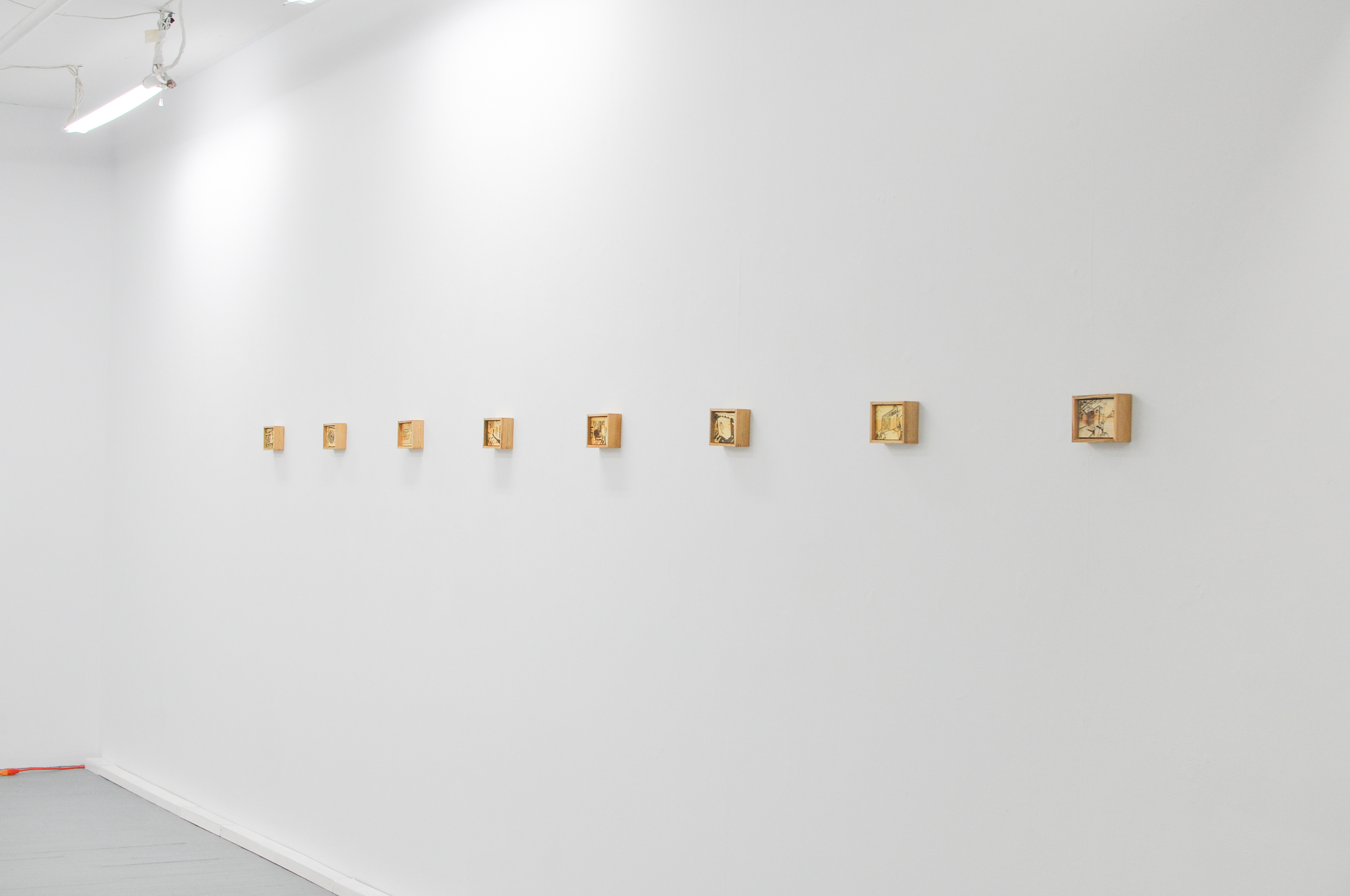
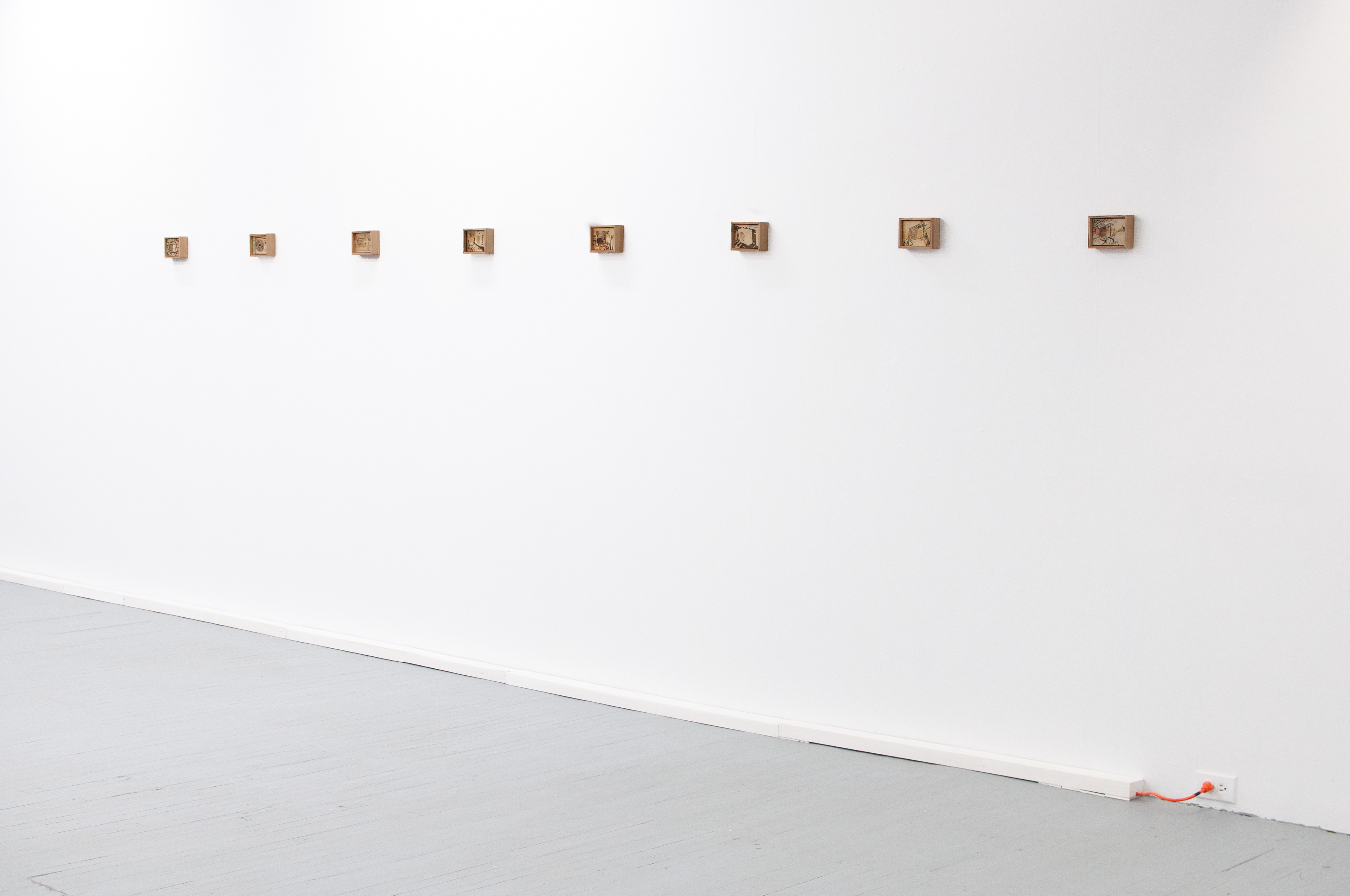
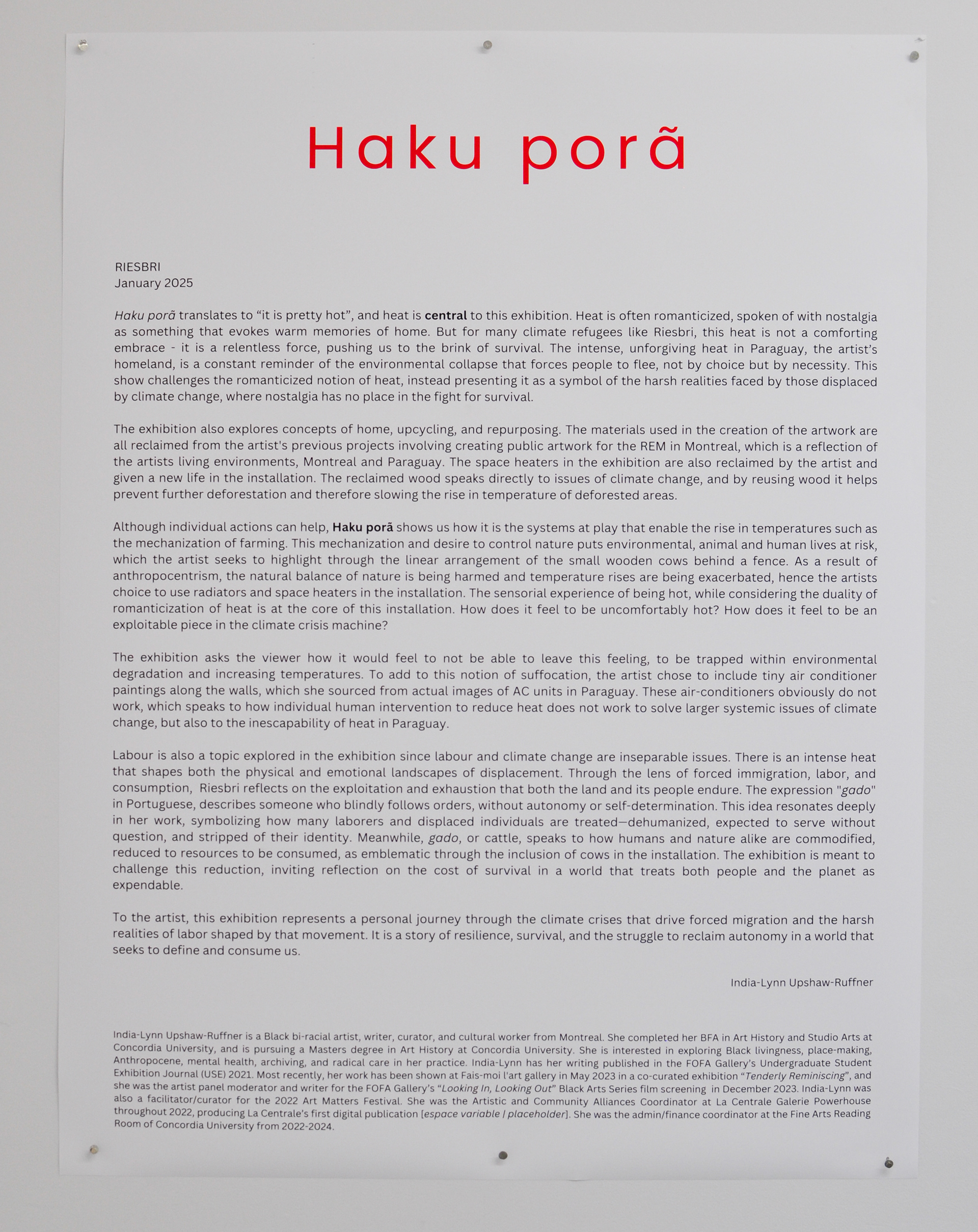
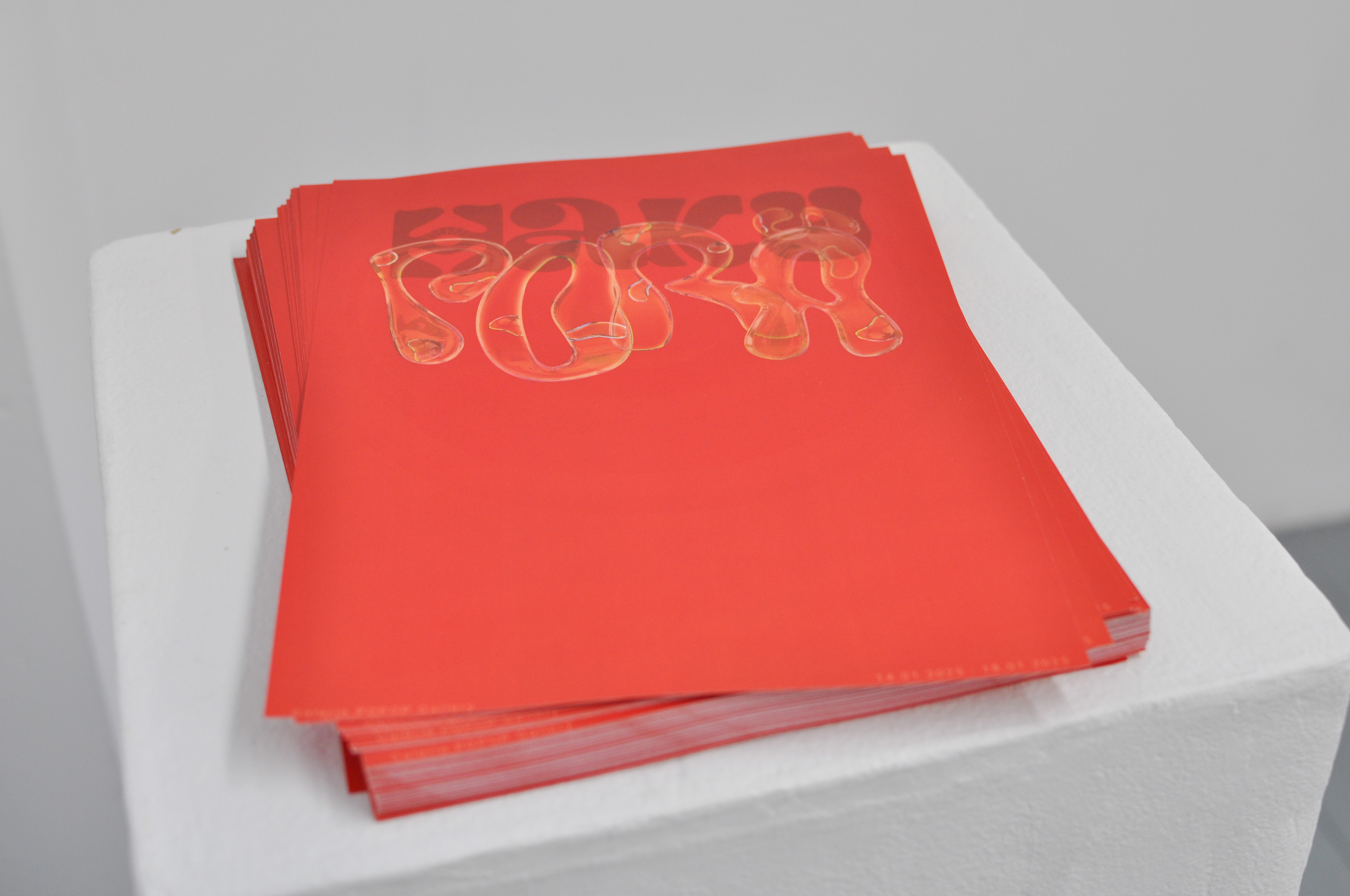
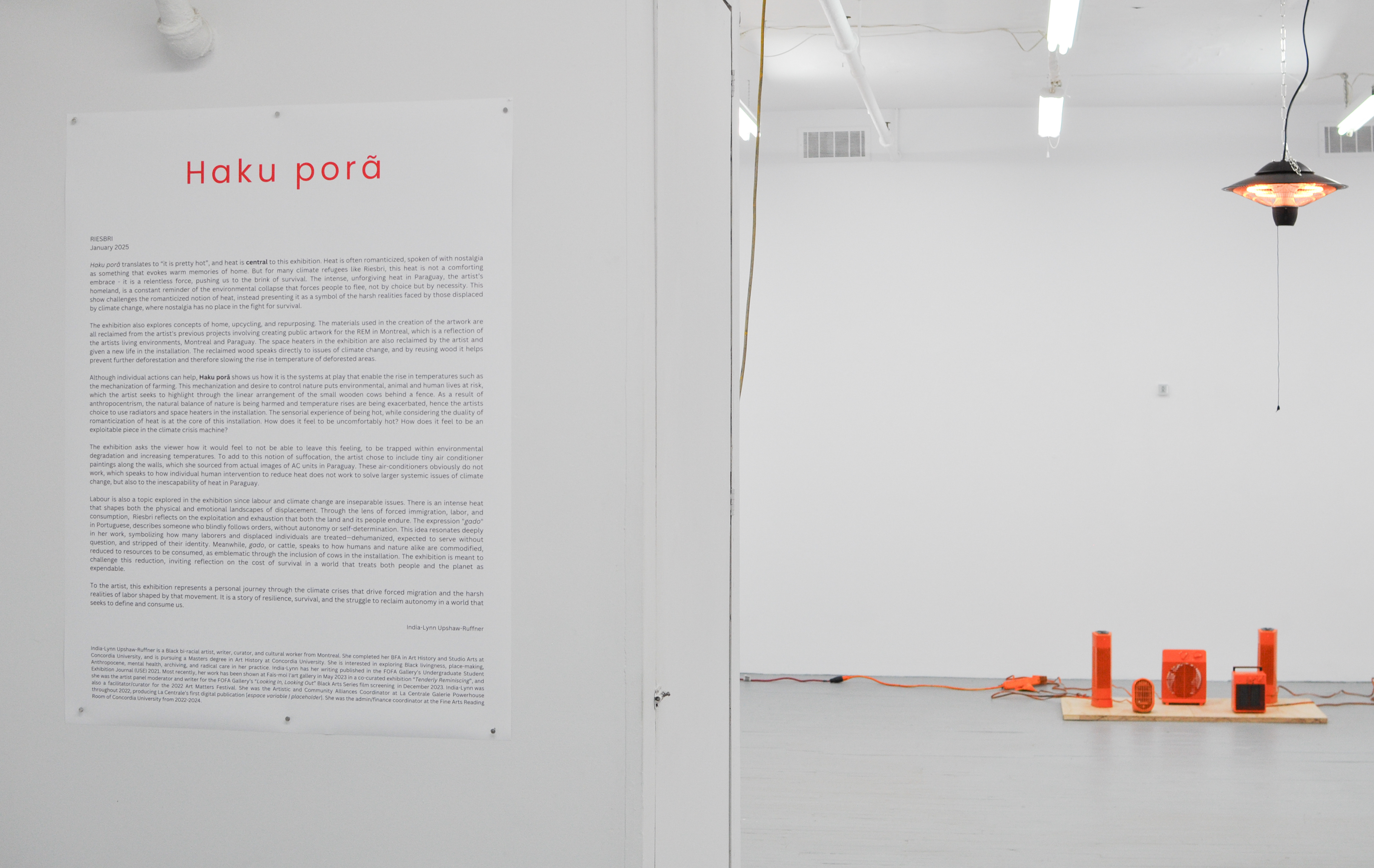
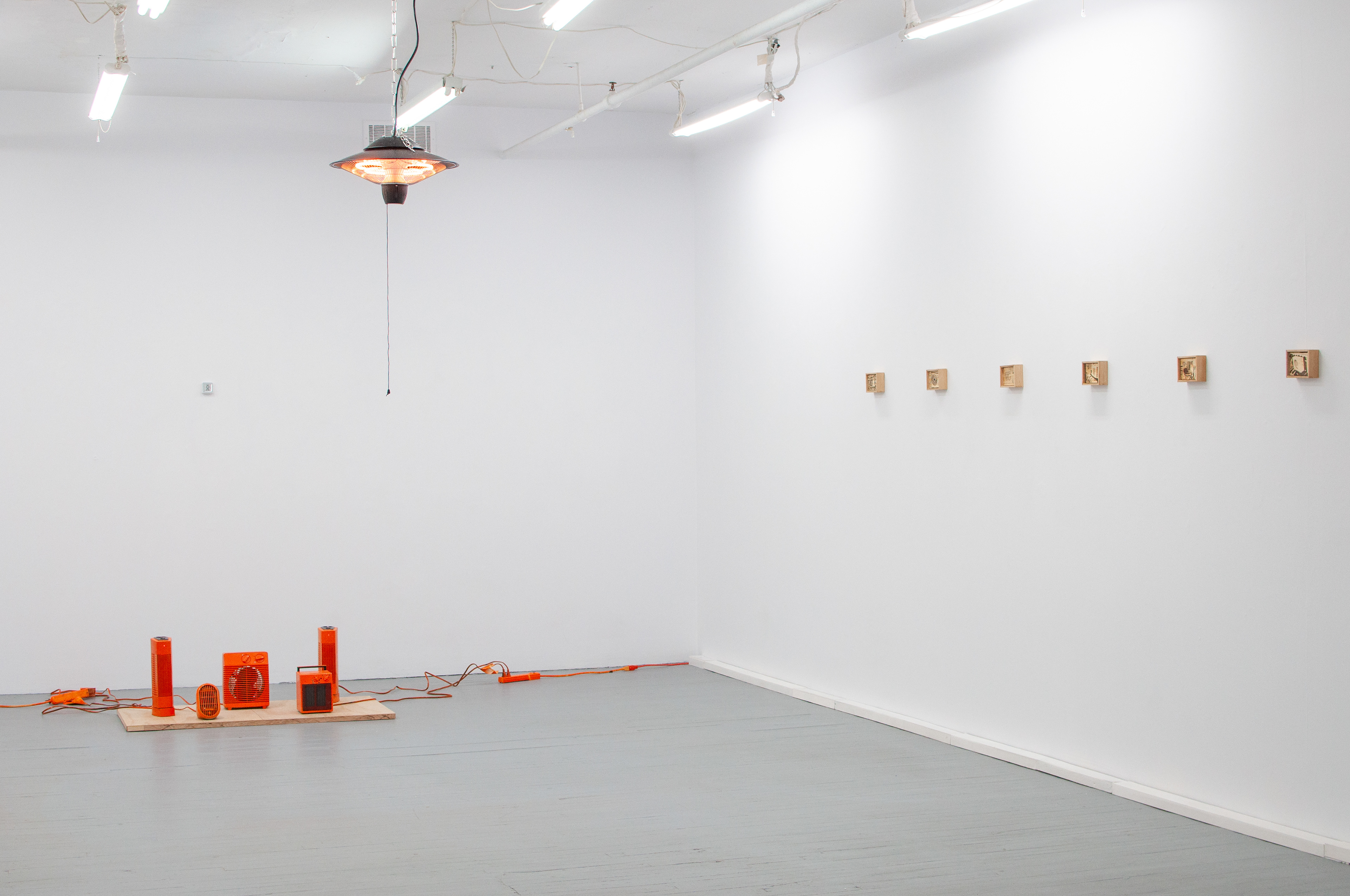
Haku porã
Riesbri solo exhibition - POPOP gallery
January 2025
Haku Pora translates to “it is pretty hot”, and heat is central to this exhibition. Heat is often romanticized, spoken of with nostalgia as something that evokes warm memories of home. But for many climate refugees like Riesbri, this heat is not a comforting embrace—it is a relentless force, pushing us to the brink of survival. The intense, unforgiving heat in Paraguay, the artist’s homeland, is a constant reminder of the environmental collapse that forces people to flee, not by choice but by necessity. This show challenges the romanticized notion of heat, instead presenting it as a symbol of the harsh realities faced by those displaced by climate change, where nostalgia has no place in the fight for survival.
The exhibition also explores concepts of home, upcycling, and repurposing. The materials used in the creation of the artwork are all reclaimed from the artist's previous project involving creating public artwork for the REM station in Montreal, reflecting the two environments that the artist lives in, Montreal and Paraguay. The space heaters in the exhibition are also reclaimed by the artist and given a new life in the installation. The reclaimed wood speaks directly to issues of climate change, and by reusing wood it helps prevent further deforestation and therefore slowing the rise in temperature of deforested areas.
Although individual actions can help, Haku Pora shows us how it is the systems at play that enable the rise in temperatures such as the mechanization of farming. This mechanization and desire to control nature puts environmental, animal and human lives at risk, which the artist seeks to highlight through the linear arrangement of the small wooden cows behind a fence. Anthropcentism is harming the natural balance of nature and exacerbates temperature increases, hence the artists choice to use radiators and space heaters in the installation. The sensorial experience of being hot, while considering the duality of romanticization of heat is at the core of this installation. How does it feel to be uncomfortably hot? How does it feel to be an exploitable piece in the climate crisis machine?
The exhibition asks the viewer how it would feel to not be able to leave this feeling, to be trapped within environmental degradation and increasing temperatures. To add to this notion of suffocation, the artist chose to include tiny air conditioner paintings along the walls, which she sourced from actual image of AC units in Paraguay. These air-conditioners obviously do not work, which speaks to how individual human intervention to reduce heat does not work to solve larger systemic issues of climate change, but also to the inescapability of heat in Paraguay.
Labour is also a topic explored in the exhibition, since labour and climate change are inseparable issues. There is an intense heat that shapes both the physical and emotional landscapes of displacement. Through the lens of forced immigration, labor, and consumption, Riesbri reflects on the exploitation and exhaustion that both the land and its people endure. The expression "gado," in Portuguese, describes someone who blindly follows orders, without autonomy or self-determination. This idea resonates deeply in her work, symbolizing how many laborers and displaced individuals are treated—dehumanized, expected to serve without question, and stripped of their identity. Meanwhile, gado, or cattle, speaks to how humans and nature alike are commodified, reduced to resources to be consumed, as emblematic through the inclusion of cows in the installation.The exhibition is meant to challenge this reduction, inviting reflection on the cost of survival in a world that treats both people and the planet as expendable.
To the artist this exhibition represents a personal journey through the climate crises that drive forced migration and the harsh realities of labor shaped by that movement. It is a story of resilience, survival, and the struggle to reclaim autonomy in a world that seeks to define and consume us.
India-Lynn Upshaw-Ruffner
Bio:
India-Lynn Upshaw-Ruffner is a Black bi-racial artist, writer, curator, and cultural worker from Montreal. She completed her BFA in Art History and Studio Arts at Concordia University, and is pursuing a Masters degree in Art History at Concordia University. She is interested in exploring Black livingness, place-making, Anthropocene, mental health, archiving, and radical care in her practice.
India-Lynn has her writing published in the FOFA Gallery’s Undergraduate Student Exhibition Journal (USE) 2021. Most recently, her work has been shown at Fait-moi l'art gallery in May 2023 in a co-curated (with Riesbri) exhibition “Tenderly Reminiscing”, and she was the artist panel moderator and writer for the FOFA Gallery’s “Looking In, Looking Out” Black Arts Series film screening and finissage in December 2023. India-Lynn was also a facilitator/curator for the 2022 Art Matters Festival. She was the Artistic and Community Alliances Coordinator at La Centrale Galerie Powerhouse throughout 2022, producing La Centrale’s first digital publication [espace variable | placeholder]. She was the admin/finance coordinator at the Fine Arts Reading Room of Concordia University from 2022-2024.
